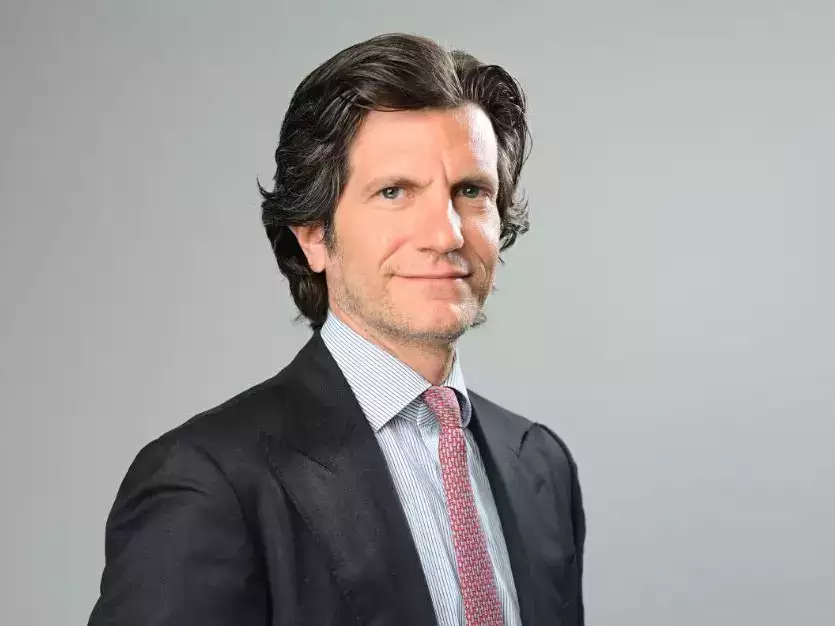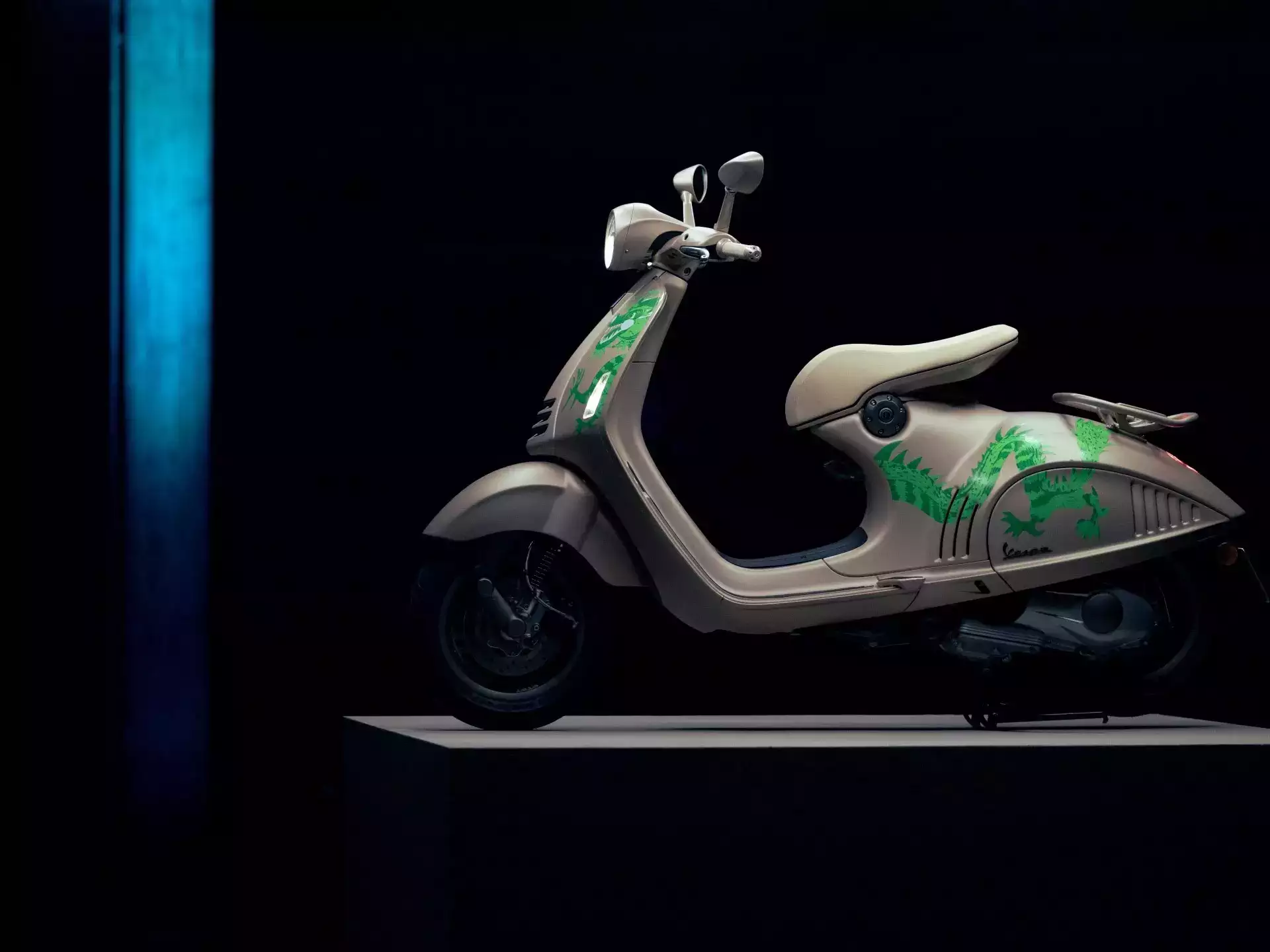
“The mistake we have done in the past is more on the scooter side, where we have not been able to face the competition of low-cost vehicles. We have put in place a new team that will start from now, especially to target those kinds of vehicles,” said Michele Colaninno, Chief Executive Officer, Piaggio Group.
He made these remarks during a conference call with analysts following the first half results on July 29. The transcript of this Q&A session has been uploaded on the Piaggio group website.

While reiterating that the company would continue to be in the high/premium end with Vespa and Aprilia models, he said this perhaps was not enough in terms of the overall scooter strategy. “But at the same time, I think we have to be ready and able, more able than ready to fill the gap, let's say, with the competition that we have on scooters,” said Colaninno.
There was a specific reference to competitors who have had a good run in the mass scooter space where numbers continue to grow at a brisk pace. “If you take the Honda Activa, if you take TVS, they produce millions and millions of vehicles,” he pointed out.
The Piaggio Group CEO was, however quick to add that such a comparison would not be apt. “You cannot compare us with Honda, obviously, which has been there in the two-wheeler market for years in India. But we have…I think that we will take the right decisions to be ready and to enter the big volume market there. Not with the Vespa, not with the bike.”
Serious relook
It is keeping this objective in mind that Piaggio believes the time has come to take a serious relook at its scooter business model for India. “I think that we have to put in place a new strategy for the two-wheeler market in India. It is true that it is moving towards a high level of consumer business, but some mistakes have been done over there, especially on two-wheels. So, I am putting in place a new organisational chart to be able to catch the opportunities on the big two-wheel vehicle market in India,” said Colaninno.
The Italian automaker has made it clear that this does not mean that the focus on premium models will be diluted. As he made clear, the company is satisfied with the response to the Aprilia RS 457 medium displacement bike that was launched recently at a price of over INR 4 lakh in India.
“The actual management — the new management team — is just people that we have decided to put in place on the R&D. But that doesn't mean that we will exit the premium market, because India is growing on GDP per capita and it will grow slowly, but we are ready to catch the growth. Numbers are not millions, but with the RS 457, we are very satisfied, said Colaninno.
Clearly, Piaggio is upbeat about India and believes in its growth potential. It is already doing reasonably well in the commercial vehicle space though the scooter impact has been tepid in comparison. The positioning of the Vespa as a premium offering along with the Aprilia range was a deliberate strategy but the company has possibly realised that it also needs to create scale and justify investments at its Baramati plant in Maharashtra.
LML alliance
During its alliance with LML decades earlier, Piaggio had its Vespa in the geared scooter commuter space. It was the closest rival to Bajaj Auto then and Vespa was much sought after by consumers then. All this fizzled out when the motorcycle revolution took off followed by the parting of ways between LML and Piaggio.
The latter then created a new entity in India, Piaggio Vehicles, which chose to focus only on the three-wheeler space beginning with cargo and then branching off to passenger vehicle options. It was only in later years that Vespa was relaunched as a premium brand followed by the Aprilia models. However, numbers have been little to write home about in a market dominated by Hero, Honda, TVS and Bajaj.
“Let's say India could be an opportunity.. oh, it is an opportunity, not could be,” reiterated Colaninno. From his point of view, the country was showing “positive momentum for the time being” which was welcome news.
“We are happy with the growth in India that is continuous but slow growth. I prefer that we can manage this kind of situation instead of the hysteria that we have in some other parts of the world. If you take China for instance, if you take Vietnam for instance. So India, I'm still positive,” said the Piaggio CEO.
He added that there were big global challenges to reckon with in terms of logistics costs thanks to the two ongoing wars (in Europe and West Asia) coupled with the Red Sea problem. “We do not see a big recovery in Asia, even though we are seeing some markets, especially Vietnam, where we should have reached the bottom. Now with a stabilising market, we will hopefully grow slightly by the end of the year,” said Colaninno.
China puzzle
China still remained “a question mark” not just for Piaggio products but also owing to the reality that the entire consumer market has been affected. “If you ask me, I think that in the medium period, all the Asian countries will come back to good performances,” he said.
Beyond this, Colaninno cautioned that it would not be easy to predict what happened around the world, especially from a political situation. “We will have elections in the United States that everybody is waiting for to see what happens. India has closed the election period, Indonesia is closed. We will see what happens in the US and that obviously will, some way, affect the worldwide market in the way of the other,” he said.
The Piaggio CEO also made it clear that he was not in favour of tariff levies on the lines of what the US and Europe have imposed on Chinese electric vehicles. It was his view that fares and import barriers would not help the situation especially with products from China.
“I think that to be fair and competitive in a world of costs, everybody should produce in the same place. So, I would prefer — and I am speaking also about this as the President of the Association of the European and Worldwide Manufacturers — that to be in a fair market, you have to have the same cost basis,” he elaborated.
According to him, it would not be particularly “intelligent” to go into the mass market or to fight on cost basis. “If we produce in Europe, we stay in Europe, if we produce in Vietnam, we stay in Vietnam. So I don't see any close down of factories around the world. I don't even see any new investments for new factories, because we have enough and we are in the right place in the right momentum,” said Colaninno.
Disclaimer: The copyright of this article belongs to the original author. Reposting this article is solely for the purpose of information dissemination and does not constitute any investment advice. If there is any infringement, please contact us immediately. We will make corrections or deletions as necessary. Thank you.





